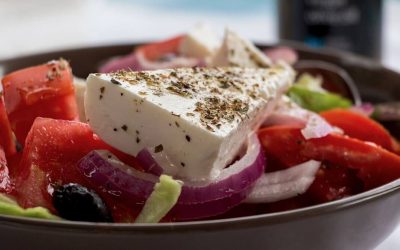All differences between will and want in Serbian: hteti i želeti
Many Serbian language learners are confused about the verbs will and want in Serbian (hteti i želeti). They feel unsure about when to use them and how they’re different or similar. In this article I’ll explain all the differences and similarities of the verbs hteti and želeti, and how their usage differs from want and will in English.
The verbs will and want in Serbian
The verbs will and want in Serbian (hteti i želeti) sometimes have synonymous meaning, but often there are differences. Let’s start by clearing up the basic confusion about the verbs will (hteti) and want (želeti) in the Serbian language.
The verb hteti means ‘to want’, and the verb želeti also means ‘to want’. That’s their synonymous meaning. They are both used to say ‘to want something’, or ‘to want to do something’. But each one of them also has a different, specific meaning.
Hteti means to want, but its specific meaning is will. And this is exactly the same as in the English language, where we use ‘will’ to form the future tense. In Serbian, we also use hteti to form the future tense.
Želeti means to want as well, but its specific meaning is to wish. The noun želja means ‘a wish’, so moja želja is ‘my wish’.
The Conjugation
The verb ‘želeti’ is a regular -i verb, and is conjugated accordingly, with a regular negation
|
ja želim |
ja ne želim ti ne želiš on ne želi mi ne želimo vi ne želite oni ne žele. |
The verb ‘hteti’ is an irregular -e verb, and has long and short forms, and an irregular negation!
|
|
Puni oblik |
Kratak oblik |
Negativan oblik |
|
Ja |
hoću |
ću |
neću |
|
Ti |
hoćeš |
ćeš |
nećeš |
|
On |
hoće |
će |
neće |
|
Mi |
hoćemo |
ćemo |
nećemo |
|
Vi |
hoćete |
ćete |
nećete |
|
Oni |
hoće |
će |
neće |
The synonymous meaning and usage of the verbs will and want in Serbian (želeti i hteti)
Since they’re synonymous and they both mean ‘to want’, we can say:
- Hoću ovu knjigu. I want this book.
or we can say:
- Želim ovu knjigu. I want this book.
We complemented both verbs with the accusative case, obviously, to say “I want (to have) this book”.
- Hoću ovu knjigu.
- Želim ovu knjigu.
We can also complete both of these verbs with da and a verb in the present tense:
- Hoću da čitam. I want to read.
- Želim da čitam. I wish to read.
Or we can complete them with a verb in the infinitive form:
- Hoću čitati.
- Želim čitati.
Both of these verbs can be completed with the da + the present tense or with the infinitive. The infinitive is more used in the North and in Western Serbia, while da+present is dominant in Belgrade, in Central and South Serbia.
However, in standard Croatian it is not acceptable to use da + the present tense. You have to say: Hoću čitati. Želim čitati. Therefore in standard Croatian, these two verbs can only be completed with an infinitive.
The specific meaning and usage of the verbs will and want in Serbian
- HTETI is stronger than ŽELETI
They are often used synonymously, but there is also a slight difference, because hteti is stronger than želeti.
Hoću to da radim. I want to do it – it’s connected to the future tense, meaning “I will do it” versus “I wish to do it”. With želeti, it’s not so certain that I will eventually do it.
So hteti is more certain than želeti.
- HTETI in its short forms to ask what you want
We also use this verb HTETI, and usually in its short forms ćeš (the short forms come without ho-) in daily communication to ask what someone wants.
We don’t use so much polite expressions, like in the English language. We ask people directly what they want and we say quite bluntly what we want. And that’s not impolite, even though to an English speaker it may pretty much seem so.
For example, if my family and I are out at a restaurant, the waiter will come and say:
- “Izvolite?” What can I bring you?
If I’m not sure what I want, I’ll ask my husband what he’ll have, so that I can get an idea about what we’re drinking. I’ll ask my husband:
- “Šta ćeš ti?”, What will you have?
So we’ll have a quick exchange along these lines:
- Šta ćeš ti? What will you have?
- Ja ću I will have a coffee.
- I* ja ću I will have a cup of coffee too.
*When you see the conjunction i (and) in an unusual place, it means ‘also’ or ‘as well’.
On the other hand, in the context of ordering and asking for food or drink, we do not really use the verb želeti unless we’re children. The children will say nicely:
- Želim I wish some juice.
- Molim sok. Please, (can I have some) juice.
- Molim čašu vode. Please, (can you give me) a glass of water.
However, this is only for children. In an adult conversation, you will never hear something like that.
- HTETI for the future tense
When it comes to the future tense, we can only use hteti to form it. We never use želeti in this context. Read more about the future tense in this article.
These were the main differences about the verbs will and want in Serbian (hteti i želeti). I hope their usage is now clear to you. What’s left now is up to you: write down 10 sentences in Serbian and use each of these verbs 5 times.
by Magdalena Petrovic Jelic
Founder of Serbonika
Serbian language teacher and entrepreneur, language lover and polyglot, but also a mother and a relentless storyteller.
On a mission to create the best web space for learning Serbian: Serbonika.
Serbonika
Najbolja metoda za učenje srpskog jezika
The best method to learn Serbian
The sooner you start learning, the sooner you’ll start talking. Take action now!
Serbian C Ć Č Sounds Pronunciation: The Best Explanation
A systematic guide to help you distinguish Serbian C Ć Č sounds and pronounce them accurately. It’s easier than you think! Listen carefully and practice pronunciation.
Greeks and Serbs: What We Have in Common
How do you answer to “Dobro došli”? If you say only “hvala”, you were taught WRONG! Discover several traditional figures of speech that will make you sound like a native, and that Serbs and Greeks have in common


